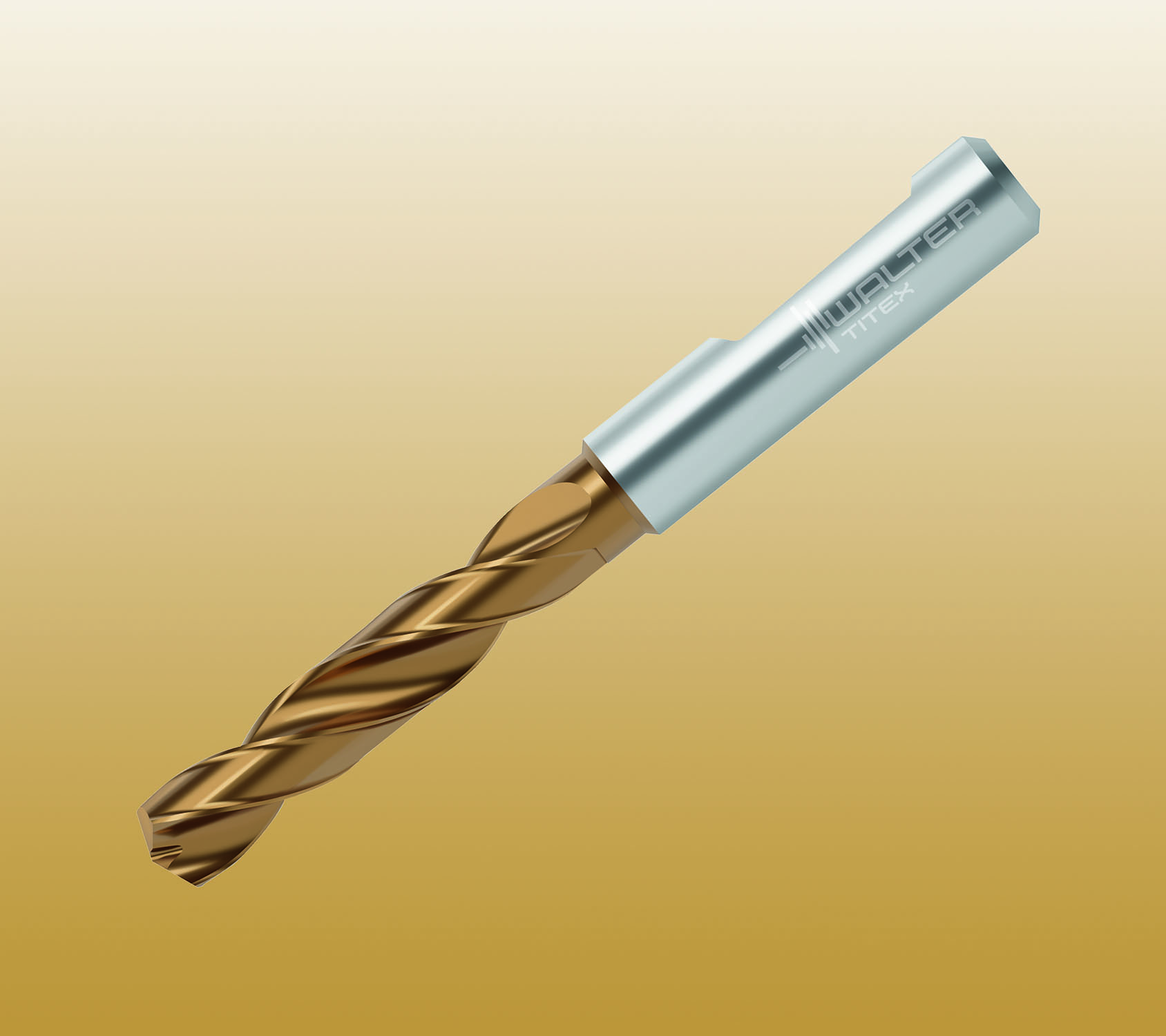DC160 Advance Solid-Carbide Drill
DC160 Advance Solid-Carbide Drill
The versatile new DC160 Advance solid-carbide drill from Walter delivers high productivity in a wide variety of materials and can be used universally in an extremely broad range of applications. The newly designed drill offers many advantages. The margins are located in an advanced forward position to ensure rapid guidance in the hole. A steep gash angle provides ample space for secure chip flow resulting in improved hole quality and reduced feed force.

The versatile new DC160 Advance solid-carbide drill from Walter delivers high productivity in a wide variety of materials and can be used universally in an extremely broad range of applications. The newly designed drill offers many advantages. The margins are located in an advanced forward position to ensure rapid guidance in the hole. A steep gash angle provides ample space for secure chip flow resulting in improved hole quality and reduced feed force. Further, the drill provides superior positioning accuracy thanks to the innovative new thinner web, as well as improved roundness.
The new DC160 Advance solid-carbide drill, available in 3, 5 and 8xD, features grade WJ30ET, which includes a proprietary Walter coating for long tool life. It has a cylindrical shank ground to an h6 tolerance, which makes is suitable for shrink-fit and hydraulic holders. Point angle is 140° and recommended coolant pressure is 145-580 psi (10-40 bar). With internal coolant the versatile new drill is suited for a variety of ISO material types P, M, K, N, S, H and O.





